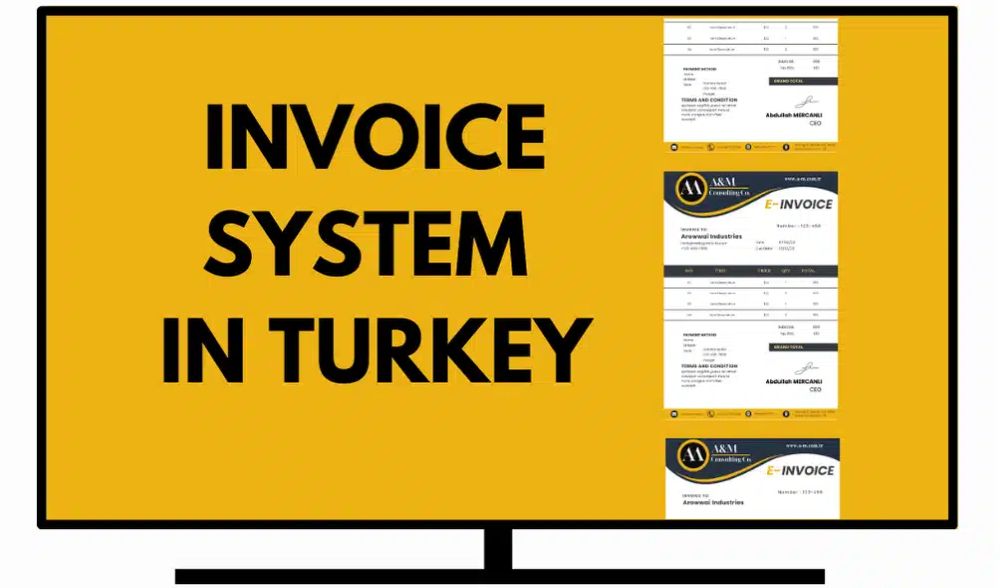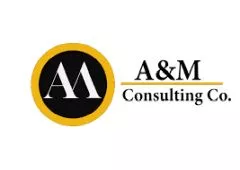- within Tax topic(s)
- in United States
- within Finance and Banking and Energy and Natural Resources topic(s)
Understanding the Invoice System in Turkey
The Turkish invoice system plays a crucial role in the country's economy, ensuring transparency, compliance, and efficiency in business transactions.
This system, governed by the Turkish Tax Procedure Law, is a system that enables businesses to meticulously document their sales of goods and services, facilitates tax collection and auditing processes, and must comply with a standard format.
In this system, the invoice is a basic accounting tool used for businesses and individuals to fulfill their tax obligations and track commercial transactions with documents.
Invoices are official documents issued during the sale of goods or services, documenting the commercial transaction between the buyer and seller.
Invoice issuance processes in Turkey are determined in accordance with tax legislation and ensure that both taxpayers and buyers fulfill their responsibilities.
Table of Contents
- Understanding the Invoice System in Turkey
- Types of Invoices in Turkey
- Invoice Requirements in Turkey
- Tax Compliance For Invoice in Turkey
- Transition to Electronic Invoicing in Turkey
- Penalties for Non-Compliance With Invoice in Turkey
Types of Invoices in Turkey
- Paper Invoice (Matbu Fatura):
- Traditional Paper Invoices: Still used by small and medium-sized businesses, paper invoices are printed and manually issued. Despite the growing popularity of electronic invoicing, paper invoices remain a legal and viable option.
- Electronic Invoice (E-Fatura):
- Mandatory for Larger Businesses: Companies exceeding certain turnover thresholds are required to issue e-invoices. These digital invoices are exchanged electronically between businesses via the Turkish Revenue Administration's (GİB) system. E-invoices offer numerous benefits, including reduced costs, faster processing, and improved record-keeping.
- E-Archive Invoice (E-Arşiv Fatura):
- For Non-E-Invoice Recipients: The e-archive invoice is used for transactions with buyers who are not registered in the e-invoice system. It is also issued electronically but stored digitally, ensuring compliance and easy access for audits.
- Self-Employed Receipt (Serbest Meslek
Makbuzu):
- For Freelancers and Professionals: This receipt is issued by individuals offering professional services, such as accountants, lawyers, doctors, and consultants. It documents the services provided and the compensation received.
- Producer Receipt:
- Definition: Farmers or merchants who record their commercial transactions in books prepare producer receipts for the products they purchase from people who do not keep books. In such cases, the commercial document that must be prepared can be briefly defined as a receipt issued for producers.
- Expense Note:
- Definition: It is a type of an invoice issued by tax payers in return for services or goods received by them from persons, tradesmen or freelancers who are not taxpayers.
- Proforma Invoice:
- For Quotation Purposes: Proforma invoices serve as preliminary bills of sale, providing an estimate before the final transaction. They are not considered official invoices for tax purposes but are often used in negotiations and sales agreements.

invoice system in Turkey
Invoice Requirements in Turkey
- Obligation to Issue Invoices: In Turkey, all businesses and freelancers who are taxpayers are required to issue invoices when they sell goods or services.
- Timing: The invoice issuance period must be within 7 days at the latest from the delivery of the goods or the performance of the service. Invoices that are not issued within this period may be subject to penal action under the tax procedure law.
- Content: Content: Every invoice in Turkey must include specific details such as the name, address, tax number and tax office of the seller and buyer, the date of the transaction, a unique invoice number, the invoice expression, and a detailed list of goods or services provided along with their prices.
- Language and Currency: Invoices are generally issued in Turkish and must be in Turkish Lira (TRY), although foreign currency invoices are also permitted under certain conditions.
- Serial Numbering: Invoices must have a unique serial number that follows a consecutive order.
- Storage: Businesses in Turkey must keep the invoices they issue and receive for 5 years. During this period, invoice documents may be requested to be presented in tax audits.
Tax Compliance For Invoice in Turkey
Value Added Tax (VAT):
Invoices in Turkey must include VAT, and the applicable rate depends on the type of goods or services provided. The standard VAT rate is 20%, but reduced rates of 10%, 8% or 1% may apply to certain items.
- VAT Withholding (Tevkifat):VAT Withholding in
Turkey is a tax mechanism where the buyer is responsible for
withholding a portion of the VAT that is due to the buyer from the
supplier for certain goods or services exceeding a certain amount
and passing it on directly to the tax authorities. This system is
designed to enable the government to collect VAT more efficiently
and reduce the risk of tax evasion. It is applied in the following
scope and rates:
- Construction works 4/10
- Plan-project services 9/10
- Advertisement services 3/10
- Food services 5/10
- Organization service 5/10
- Labor supply services 9/10
- Private security service 9/10
- Building inspection services 9/10
- Cleaning service 9/10
- Shuttle services 5/10
- Copper, zinc and aluminum sales 7/10
- Raw hide and skin sales 9/10
- Wood and forest products sales 5/10
Income Tax :
Invoices issued for some goods and services in Turkey must include income tax withholding. The withheld tax is paid to the tax office by the recipient.
- Income Tax Withholding in Expense Note: Expense Note is issued for goods and services received from non-taxpayers. The recipient calculates the income tax at the applicable legal rate and deducts it from the payable amount. The deducted tax is then declared and paid to the tax office by the recipient.
- Income Tax Withholding in Self-Employed Receipt: For Freelance receipts issued by freelancers, income tax at the legal rate is withheld by the recipient. The recipient is responsible for paying the deducted tax to the tax office by the due date.
- Income Tax Withholding in Producer Receipt:
Taxpayer farmers and merchants must withhold income tax from
products purchased from non-taxpayer farmers at the following
rates:
- Animal products 2%,
- Agricultural products 4%,
Transition to Electronic Invoicing in Turkey
The e-invoice system entered into force in Turkey in 2010 and has been made mandatory for businesses exceeding a certain turnover. E-invoice is faster, more secure and more environmentally friendly than paper invoices. It also has been allowing the state to carry out tax audit processes more effectively.
E-invoice is prepared through the Turkish Revenue Administration's e-invoice portal, forwarded to the recipients and storeed. This system was developed to facilitate invoice transactions and prevent tax evasion and has been using commonly in Turkey.
E-Invoice Thresholds: Businesses with an annual turnover exceeding TRY 3 million are required to use e-invoices. Additionally, certain sectors, such as the fuel distribution industry, are mandated to adopt this system regardless of turnover.
Expansion of E-Invoice: The Turkish tax authorities has been extended the e-invoice system to include businesses and transaction types below which has annual turnover of 500 Thousand TRL and above. With this aiming to improved tax collection efficiency and reduced administrative burdens on companies,
- E-commerce companies
- Automotive companies
- Internet advertising companies
- Fruit or vegetable trading companies
Benefits of E-Invoicing:
Cost Efficiency: Eliminates the need for paper,
printing, and storage costs.
Faster Processing: Speeds up the billing and
payment cycle.
Improved Compliance: Facilitates accurate tax
reporting and reduces the risk of errors.
Penalties for Non-Compliance With Invoice in Turkey
Fines: Failure to issue, store, or properly
document invoices can result in significant fines. In some cases,
the authorities may impose penalties based on the total amount of
the transaction.
Legal Actions: In serious cases of tax evasion or
fraud, legal actions can be taken against the business, including
criminal charges.
The content of this article is intended to provide a general guide to the subject matter. Specialist advice should be sought about your specific circumstances.


